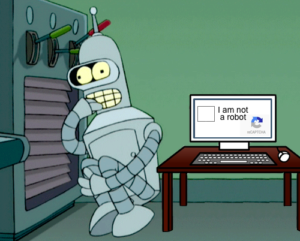
The herd mentality in voiceover today is all about figuring out how to incorporate AI, voice models, and voice clones into your business plan. Who will be the first movers to get ahead of the AI voiceover trend and capitalize on it? Who will be harmed? Not me. On both counts.
I’ve spent my career trying to see where the herd is moving and then either getting ahead of the next move (or, more often,) moving in the opposite direction. This philosophy has helped me build a voiceover business and voiceover-adjacent businesses that have thrived for almost three decades. It has also served me well in financial planning and investing. Scared of the markets right now? I’m not. Warren Buffett once said it is wise for investors to be “fearful when others are greedy, and greedy when others are fearful.” I’m buying market dips right now in multiple sectors while most people are selling. If the market crashes, guess what? I’ll still be a buyer. In the long run, the growth will be there.
AI Voiceover vs. Authentic Human Voices
Recently, I encountered a fascinating Twitter thread (https://bit.ly/3qxAe9f) by content marketing writer Rob Lennon, who has self-published 45 titles on Amazon and is highly familiar with the freelance writing industry. The freelance writing industry has similarities to voiceover, though it is not directly analogous. However, Lennon’s article struck a chord. Lennon predicts that “Entry-level freelance writing jobs will be decimated w/in five years and replaced by AI wranglers.” This is similar to my prediction of the imminent demise of entry-level voiceover jobs at the hands of AI voice models. The sub-$100 voiceover space will likely cease to exist for human voice actors in the next five years. The $100-$250 space could see up to 80% of jobs replaced by robots. And the $250-$500 space may see as many as 20% of jobs lost to AI. Above the $500 line, where quality and nuance trump price, there is likely to be minor, if any, erosion.
Lennon posits that “A chain reaction occurs. Fewer entry-level business writing jobs are available. Years go by. Fewer writers getting better at their craft. Fewer writers writing about writing. Thus begins the gap.” Voiceover will likely experience a similar phenomenon. Fewer low-end jobs available. Fewer new entrants into the industry. Eventually, buyers are left with a stark choice between human, or robot, as the available talent pool thins over time.
A market will emerge for what Lennon calls “strict human verification.” High-end buyers will demand authentic human voices. Consumers will demand them. And the most discriminating may choose to work only with those voice actors who can guarantee that their voice does not exist in an artificial form.
If you are licensing your voice in AI form now, it will be very challenging to assure future buyers that someone else won’t be able to use a model of your voice to recreate the deliverable you provide them. It may dilute your value in a market that starts to prize verifiably human voices. We don’t know what the future looks like. This is one of many possible outcomes. But one thing I’ve yet to see from AI modelers is a use case for how voice actors make more than pizza money from voice clones. Show me how we get to 5-figures monthly with an AI model, and you’ll have my interest. Until then? Going forward, J. Michael Collins voiceovers are Verified Human, and I’ll proudly display a badge declaring the same on my homepage in the near future.
Of course, I’m also buying stock in Veritone. So we’ll see.
*This blog is the writer’s personal opinion only and does not constitute financial advice.






